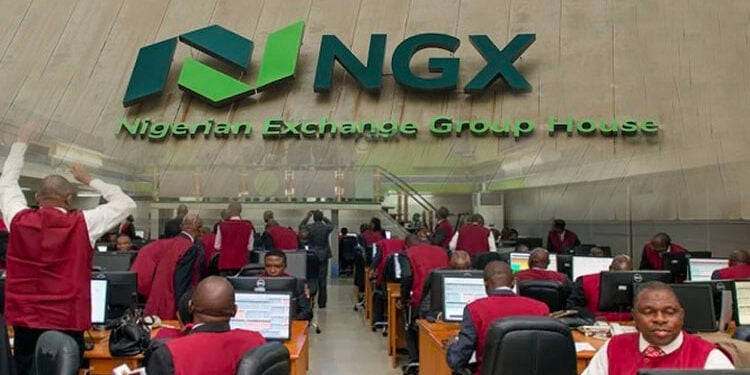In global finance, where capital knows no borders, it’s increasingly common for a single company to appear on several stock exchanges at once.
Take Anglo American Plc (JSE: AGL), a mining giant born in South Africa, now headquartered in London, yet still proudly listed in Johannesburg and trading on the NYSE as NGLOY.
By mid-2025, more than 45 international firms maintain secondary listings on the Johannesburg Stock Exchange (JSE), a surprising number for what many outsiders see as a “regional” market.
But that extra ticker is more than symbolic. It’s a calculated move that affects access to capital, investor diversity, and, crucially, market liquidity.
What Exactly Is a Secondary Listing on the JSE?
A secondary listing allows a company already listed on a major exchange (say, the LSE or NYSE) to trade on another, in this case, the JSE, without shifting its home base or regulatory centre.
Think of it as opening a branch office: headquarters stay in London or New York, but the company gains local visibility and investors.
Since 2015, the JSE has offered a “fast-track” process for firms listed for at least 18 months on accredited exchanges. The result? Approvals in weeks instead of months and dramatically lower costs.
By June 2025, this had drawn 45 companies, from resource titans to consumer brands, per South African Reserve Bank data.
Why the JSE? Because it’s Africa’s largest bourse, with a market cap exceeding $700 billion and home to deep pools of institutional capital.
South African pension and insurance funds, managing over R6 trillion ($350 billion) in assets, are required to hold “domestic” investments, and a JSE listing qualifies foreign firms for those allocations.
Why Keep a JSE Listing? Four Strategic Reasons
- Access to South Africa’s Capital Base
A JSE listing opens the door to local pension and unit trust money that can’t easily buy LSE or NYSE shares. For miners like Anglo American or BHP, it’s a cost-effective way to tap billions in rand-denominated funds for capital projects. - Operational and Regulatory Fit
Companies with major African operations such as mining, telecoms, and retail gain local credibility and smoother regulatory relations. A JSE presence also helps hedge against rand volatility and supports eligibility for local financing and contracts. - Investor Diversification & Brand Presence
A secondary ticker raises visibility across Africa’s fast-growing investor base. Local retail and institutional buyers who avoid foreign exchanges for currency or access reasons can now trade these names directly. - Low-Friction Global Reach
The JSE’s IFRS-aligned reporting rules, plus cooperation pacts like the 2024 JSE–Euronext partnership, make the process simple and cost-efficient. It’s a small price for big strategic value.
Not surprisingly, secondary listings rose 20% YoY in H1 2025, reflecting renewed interest in African capital markets.
Real-World Examples: Who’s Still Flying the JSE Flag?
| Company | Primary Listing(s) | JSE Ticker | Why They Stay |
|---|---|---|---|
| Anglo American Plc | LSE (primary), NYSE (ADR) | AGL | Taps local pension capital for mining projects; JSE volumes up 15% YoY. |
| British American Tobacco Plc | LSE (primary), NYSE | BTI | African brand strength; rand-based dividends attract local investors. |
| BHP Group Ltd | LSE/ASX (primary), NYSE | BHG | Maintains African exposure, balances global commodity cycles. |
| AngloGold Ashanti Plc | NYSE (primary), LSE | AUG | Retains African investor base post-NYSE shift. |
| Prosus N.V. (Naspers arm) | Euronext (primary), LSE | PRX | JSE ticker enables South African retail participation in global tech holdings. |
From Alphamin to Zimplats, the roster highlights Johannesburg’s role as the gateway between African assets and global investors.
The Liquidity Question: Boost or Burden?
Liquidity, which is how easily a stock trades without sharp price moves, is the lifeblood of any market. So, do secondary listings really help?
The upside:
- Wider Trading Pools: The JSE brings in African investors who rarely trade in foreign currencies. Studies show 10–25% liquidity gains after cross-listing. Anglo American’s JSE trades now make up about 8% of its global volume.
- Better Price Discovery: Multiple venues reduce information gaps and smooth volatility. Research in 2025 found a 15% average lift in overall liquidity for dual-listed firms in emerging markets.
- Index Inclusion: JSE-listed foreign firms can join indices like the FTSE/JSE Top 40, drawing passive fund flows and improving turnover.
The limitations:
- Fragmented Volume: Trading split across venues can thin order books locally. The JSE’s daily turnover is roughly one-tenth of the NYSE’s.
- Currency & Compliance Costs: Rand swings and dual filing obligations add R5–10 million ($300k–600k) in annual overheads.
Net-net, evidence points to a 12–18% liquidity gain for most cost-neutral dual listings that is modest but meaningful.
Why It Matters
In 2025, Africa’s financial narrative is shifting from “frontier” to “strategic frontier.” For firms with roots or ambitions on the continent, keeping a JSE ticker is smart portfolio engineering.
It diversifies capital sources, builds investor loyalty, and enhances price discovery across time zones.
For investors, these dual-listed giants offer unique plays: access to global names at African valuations, often with attractive dividend yields and rand-denominated stability.
The Bottom Line
Dropping a JSE listing for the simplicity of London or New York would mean walking away from one of the deepest capital pools in the Global South.
As the JSE expands its fast-track listings and cross-exchange alliances, expect more blue chips to join.
In a world chasing diversification and liquidity, Johannesburg’s ticker still carries serious weight.
Ronnie Paul is a seasoned writer and analyst with a prolific portfolio of over 1,000 published articles, specialising in fintech, cryptocurrency, climate change, and digital finance at Africa Digest News.







Leave a Reply